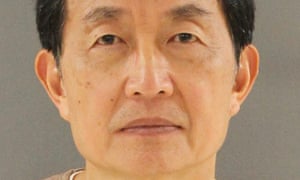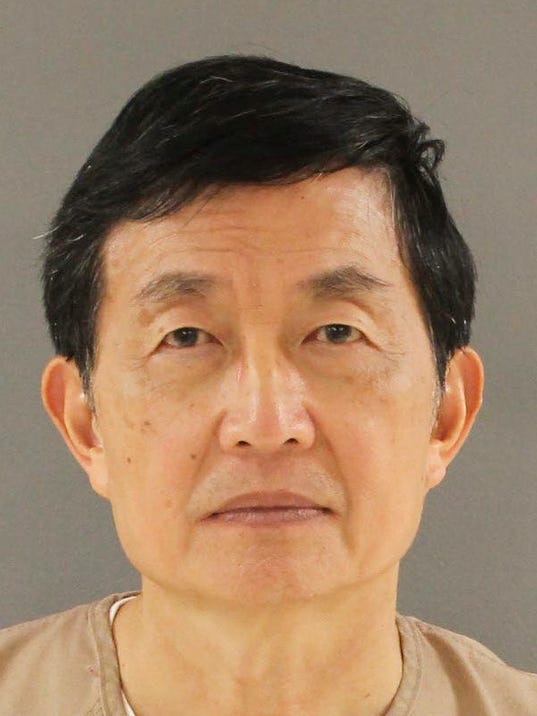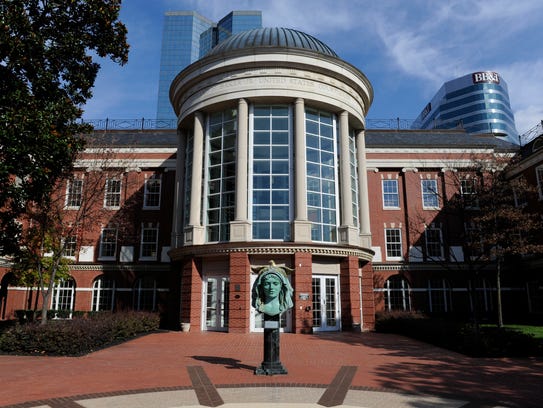By Rob Davies

Szuhsiung ‘Allen’ Ho, a nuclear engineer employed by the China General Nuclear Power Company. Photograph: Knox County sheriff's office
Szuhsiung “Allen” Ho is, according to a motion filed by his lawyer, a 66-year-old American citizen who was born in Taiwan, educated in the US and lives in Wilmington, Delaware.
In character statements submitted to a court in Tennessee, friends and neighbours described him as an honest and law abiding member of the community who is accused of nuclear espionage brought against him by the US government.
Ho came to the US in 1973 to attend the University of California and married his wife Anne a year later.
Szuhsiung “Allen” Ho is, according to a motion filed by his lawyer, a 66-year-old American citizen who was born in Taiwan, educated in the US and lives in Wilmington, Delaware.
In character statements submitted to a court in Tennessee, friends and neighbours described him as an honest and law abiding member of the community who is accused of nuclear espionage brought against him by the US government.
Ho came to the US in 1973 to attend the University of California and married his wife Anne a year later.
He received a PhD in nuclear engineering from the University of Illinois in 1980, and became a naturalised US citizen three years later. .
The couple are childless, but Ho fathered a son outside the marriage in 2007.
The couple are childless, but Ho fathered a son outside the marriage in 2007.
Neighbours said his wife had declared herself willing to help raise the child in the US.
They are described as active members of the local Chinese American Community Centre in Wilmington, where Anne Ho is involved in running a women’s book club.
The couple live in a large house in the town, which has sizeable Chinese community, but Ho spends much of his time in China working for his nuclear consulting business, Energy Technology International, which was set up in 1996.
Prosecutors say he has two flats in China, one of his own and another for his son and the boy’s mother.
Ho has worked as a consultant for China General Nuclear Power, which has a 33% stake in the UK’s £18bn Hinkley Point C project.
He enticed US nuclear experts at the federally owned Tennessee Valley Authority energy corporation to pass sensitive information to Beijing by paying them bribes.
They are described as active members of the local Chinese American Community Centre in Wilmington, where Anne Ho is involved in running a women’s book club.
The couple live in a large house in the town, which has sizeable Chinese community, but Ho spends much of his time in China working for his nuclear consulting business, Energy Technology International, which was set up in 1996.
Prosecutors say he has two flats in China, one of his own and another for his son and the boy’s mother.
Ho has worked as a consultant for China General Nuclear Power, which has a 33% stake in the UK’s £18bn Hinkley Point C project.
He enticed US nuclear experts at the federally owned Tennessee Valley Authority energy corporation to pass sensitive information to Beijing by paying them bribes.
He failed to register with the Department of Justice as an agent of a foreign state and that he is paid by the Chinese government.
Ho is charged with helping a foreign power produce nuclear material, a term that refers to enriched uranium and plutonium for nuclear reactor fuel.
His lawyer, Peter Zeidenberg, said in court papers Ho had “no expertise or experience in the development or production of special nuclear material”.
He said Ho was helping nuclear plants in China to run safely in order to avoid a Chernobyl-style disaster.
Ho was arrested in Atlanta, Georgia, in April and has been jailed pending trial.
Ho is charged with helping a foreign power produce nuclear material, a term that refers to enriched uranium and plutonium for nuclear reactor fuel.
His lawyer, Peter Zeidenberg, said in court papers Ho had “no expertise or experience in the development or production of special nuclear material”.
He said Ho was helping nuclear plants in China to run safely in order to avoid a Chernobyl-style disaster.
Ho was arrested in Atlanta, Georgia, in April and has been jailed pending trial.
If found guilty he could face life in prison.
Zeidenberg has requested bail, pointing out that Ho, 66, is “not a young man” and is “poorly equipped for dealing with the stress and potential dangers inherent in detention”.
He said that at one facility where Ho was held, he had to be segregated from other inmates after they were heard discussing a plan to harm him.
“It has been brutal for him in every way imaginable,” a friend of Ho’s said.
Zeidenberg has requested bail, pointing out that Ho, 66, is “not a young man” and is “poorly equipped for dealing with the stress and potential dangers inherent in detention”.
He said that at one facility where Ho was held, he had to be segregated from other inmates after they were heard discussing a plan to harm him.
“It has been brutal for him in every way imaginable,” a friend of Ho’s said.
Sino-American eternal conflict of loyalty
Neighbours and family friends have provided statements praising his character, according to filings with the court intended to support his bail request, which will be heard on Tuesday.
Gwen and David Chen, also of Wilmington, said Ho was a “bright, honest, warm, mild, likable [sic], and friendly man”, adding that the allegations “must be some misunderstanding”.
Friend Amy Chien said he was a “man of filial piety” who always visited his family in Taiwan when he travelled to China and was “well liked and respected in his circle of friends”.
Shirley and Evan Tseng said he spent a lot of time in China for work, but that he had “roots deeply planted in Delaware”.
Neighbours and family friends have provided statements praising his character, according to filings with the court intended to support his bail request, which will be heard on Tuesday.
Gwen and David Chen, also of Wilmington, said Ho was a “bright, honest, warm, mild, likable [sic], and friendly man”, adding that the allegations “must be some misunderstanding”.
Friend Amy Chien said he was a “man of filial piety” who always visited his family in Taiwan when he travelled to China and was “well liked and respected in his circle of friends”.
Shirley and Evan Tseng said he spent a lot of time in China for work, but that he had “roots deeply planted in Delaware”.
“But China is his home and his country, and he would never betray it,” they said.

